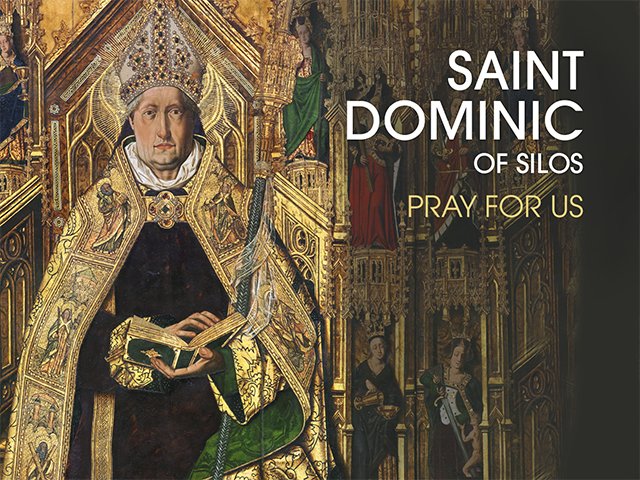



St. Dominic of Silos (1000–1073 A.D.) was born in Navarre, Spain, to a peasant family. He grew up herding his father's sheep in the Pyrenees mountains. This work endeared in him a love of solitude, leading him to enter the local Benedictine monastery in Navarre. He eventually became its prior, but was driven out when the King of Navarre seized its lands. Dominic then fled to another monastery under the protection of King Ferdinand I of Leon. Though the monastery was dilapidated, he became abbot and restored it both materially and spiritually, turning it into a significant center of scholarship and charity to the poor. The funds of the monastery were used to ransom Christian captives who were enslaved by Muslims. St. Dominic of Silos was known during his life and after death as a miracle worker, making him a popular Spanish saint. The Spanish mother of St. Dominic de Guzmán, founder of the Dominican Order, prayed for a son at St. Dominic of Silos' shrine; when she conceived, she named her son after him. St. Dominic of Silos' special patronage became connected with pregnancy, and until 1931 his crozier was used to bless the queens of Spain, and was placed beside their beds when they were in labor. St. Dominic of Silos is also the patron of prisoners and shepherds. His feast day is December 20.